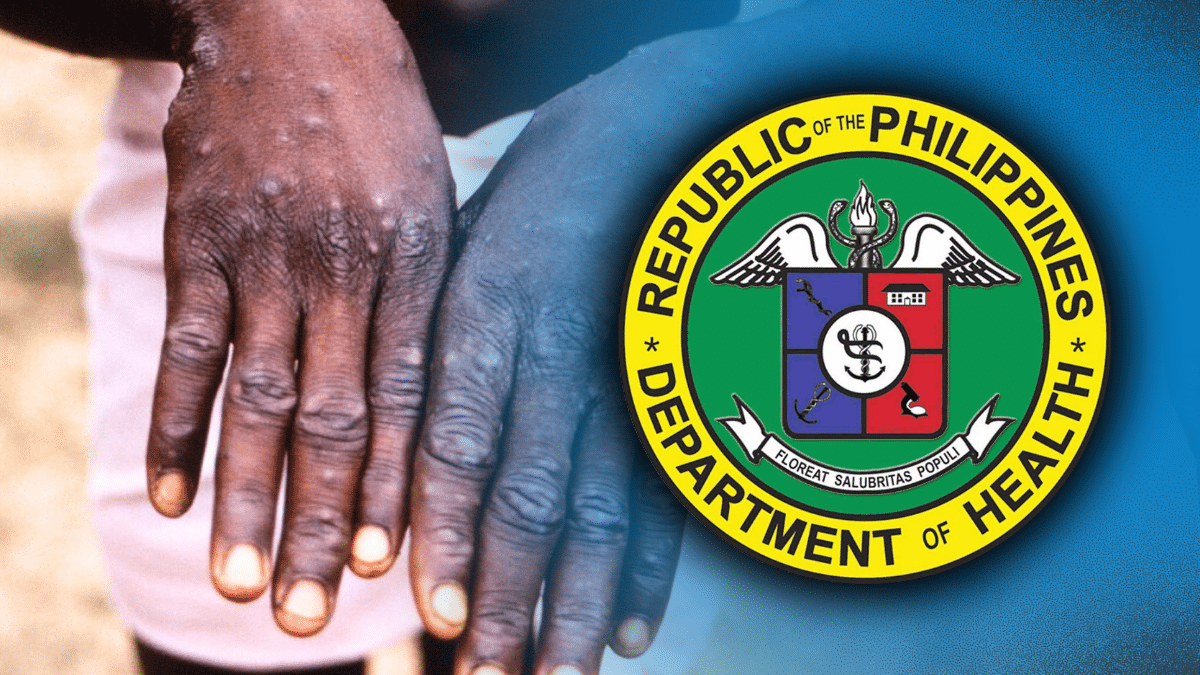
(File photo from Agence France-Presse/INQUIRER FILES)
MANILA, Philippines — The Department of Health (DOH) detected three new cases of mpox (formerly called monkeypox), bringing the total number of active cases to eight.
Meanwhile, the total number of mpox cases has increased to 17 since July 2022.
READ: 2 new mpox cases reported in PH; total rises to 14
In a statement on Sunday, the DOH said two of the new cases were from Metro Manila while the third is from Calabarzon, and all of them have the milder MPXV clade II.
Below are the details of the three new cases:
Case 15
Twenty-nine-year-old male from the National Capital Region (NCR) Symptoms started August 21 Had rashes on his upper lip, arm and anal area, and swollen neck lymph nodes as well as sore throat, muscle pain and weakness Developed fever on August 22 Had anonymous sexual encounters with more than one partner Did not travel within 21 days before the start of symptoms Currently in home isolation
Case 16
Thirty-four-year-old male also from NCR Symptoms started August 27 Had rashes and blisters over his arms, genital and anal area in addition to cough, fatigue and swollen lymph nodes in his groin area Did not travel anytime 21 days before symptoms started Had sexual contact with three partners before symptoms started Currently in home isolation
Case 17
Twenty-nine-year-old male from Calabarzon Started having fever on August 19 Developed rashes (vesicles) on his face, thorax, arms, legs and soles as well as headache, muscle pain and swollen neck lymph nodes Did not travel within 21 days before the start of symptoms Had close intimate contact with one sexual partner who may have had the same skin symptoms
According to the DOH, common symptoms of mpox include skin rash or mucosal lesions that can last from two to four weeks.
It noted that the rashes are accompanied by fever, headache, muscle aches, back pain, low energy and swollen lymph nodes.

